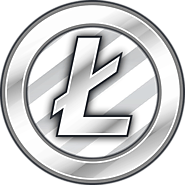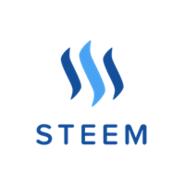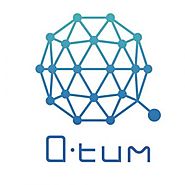-
About
- About Listly
- Community & Support
- Howto
- Chrome Extension
- Bookmarklet
- WordPress Plugin
- Listly Premium
- Privacy
- Terms
- DMCA Copyright
- © 2010-2025 Boomy Labs


Listly by Ernie Varitimos
The 30 most investible companies with a blockchain currency or token. Bitcoin has ignited a market with trust through untrusted networks and decentralized power. People are becoming millionaires overnight. This movement portends to be bigger than the advent of the Internet...can you imagine that? Get on boards now!
Source: https://juntocoin.com/blockchain30

Ethereum (ETH) - A decentralized platform that runs smart contracts: applications that run exactly as programmed without any possibility of downtime, censorship, fraud or third party interference. Ethereum is how the Internet was supposed to work. As long as you have enough funds to pay for your code to be run by the network, your contacts will always be up and running.
Website: https://www.ethereum.org

OmiseGO (OMG) - Bank with the Unbanked. Ethereum-based financial technology for use in mainstream digital wallets, that enables real-time, peer-to-peer value exchange and payment services agnostically across jurisdictions and organizational silos, and across both fiat money and decentralized currencies. Designed to enable financial inclusion and disrupt existing institutions, access will be made available to everyone via the OmiseGO network and digital wallet framework.
Website: https://omg.omise.co

Ripple (XRP) - Ripple positions itself as a complement to, rather than a competitor with, Bitcoin - the site has a page dedicated to Ripple for bitcoiners. Ripple is a distributed network which means transactions occur immediately across the network - and as it is peer to peer - the network is resilient to systemic risk. Ripples aren't mined - unlike bitcoin and its peers - but each transaction destroys a small amount of XRP which adds a deflationary measure into the system. There are 100 billion XRP at present.
Website: https://ripple.com

Waves is a Blockchain token platform that allows the creation transfer and exchange of custom and fiat tokens and assets through the Blockchain without volatility.The Waves liteclient will feature a Portfolio, voting area to facilitate consensus on various projects and a messaging center.
Based on NXT's colored coin technology, Waves was built from scratch to provide new features . Waves plans to deliver a KYC and AML compliant platform with multiple Bank partnerships that will act as gateways for fiat deposits and withdrawals.
Waves has recently formed a partnership with Mycelium Wallet.
Website: https://wavesplatform.com/

Litecoin LTC - provides faster transaction confirmations (2.5 minutes on average) and uses a memory-hard, scrypt-based mining proof-of-work algorithm to target the regular computers and GPUs most people already have - which are its main differentials to Bitcoin. The Litecoin network is scheduled to produce 84 million currency units with a halving in reward every four years just like bitcoin. The coin was created by a Google employee, Charles Lee. Litecoin is in second spot to Bitcoin and has spawned numerous clones - however it has a solid base of support and dedicated development team.
Website: https://litecoin.com

IOTA is an open-source distributed ledger protocol that goes 'beyond blockchain' through its core invention of the blockless ‘Tangle’. The IOTA Tangle is a quantum-proof Directed Acyclic Graph, with no fees on transactions & no fixed limit on how many transactions can be confirmed per second in the network. Instead, throughput grows in conjunction with activity in the network; the more activity, the faster the network. Unlike blockchain architecture, IOTA has no separation between users and validators; rather, validation is an intrinsic property of using the ledger, thus avoiding centralization. IOTA is initially focused on serving as the backbone of the emerging Internet-of-Things (IoT). For a more in depth look at the technical design of IOTA read their https://iota.org/IOTA_Whitepaper.pdf.
Website: https://iota.org

BitConnect Coin is a Proof of Work/Proof of Stake Scrypt cryptocurrency. They are used by Bitconnect community members for Bitconnect services and to store and invest the wealth in a non-government controlled currency. The BitConnect coins will also be used as payment system on number of BitConnect partner websites.

Bitcoin Cash (BCH) - A hard forked version of the original Bitcoin. It is similar to bitcoin with regards to its protocol; Proof of Work SHA-256 hashing, 21,000,000 supply, same block times and reward system. However two main differences are the the blocksize limits, as of August 2017 Bitcoin has a 1MB blocksize limit whereas BCH proposes 8MB blocks. Also BCH will adjust the difficulty every 6 blocks as opposed to 2016 blocks as with Bitcoin.
Website: https://www.bitcoincash.org

Steem.it is a blockchain-based social media platform where anyone can earn rewards by posting relevant content, curating quality content by upvoting and by holding Steem based currencies in a vest fund, which generates interest.
There are three main currencies in Steemit: Steem, Steem Power (SP) and Steem Backed Dollars (SBD).
Steem is liquid and can be bought in an exchange and converted into steem dollars or steem power.
Steem Power is basically Steem that is locked in a vesting fund for 3 months. Users can use steem power to upvote content and get curating rewards.
When a user upvotes content his steem power gets depleted and then slowly regenerated. Steem Power holders recieve interest from their holdings. The more Steem Power a voter has the more revenue he'll generate for himself (in form of SP) and for the content creator (In SBD).
There is also an incentive to upvote content early, as the rewards are distributed according to time. The earliest votes gets the biggest share of the reward.
Steem Backed Dollars are there to protect content creators from volatitlity and can be traded for roughly 1 usd worth of steem, in order to cash out from steem. Converting Steem backed dollars into STEEM takes 5 days. Users also recieve interest from holding SBD. T
Steem is a proof of work currency with a scheduled blocktime of 3 seconds. Steem PoW mining is done in rounds of 63 seconds by 21 miners (witnesses). 19 of the miners are pre voted, one is the other with the most computational power, and the last one is selected from a queue of witnesses that did not get on the top 19 voted witnesses.
90% of the block reward is allocated to a vest fund to reward curators and PoW miners, the other 10% are made liquid in the form of steem and are used to reward content creators. Steem gets converted to Steem Backed Dollars and sent to the content creator.
Website: https://steem.io/

EOS tokens are ERC-20 compatible tokens distributed on the Ethereum blockchain pursuant to a related ERC-20 smart contract (the “EOS Tokens”).
The founders tokens represent 10% of the aggregate EOS Token and are currently held in Smart Contracts.
The ICO is divided into two phases, period 1 offers 20% of total supply and period 2 offers 70% to investors, Phase 2 is split into 350 consecutive 23 hours periods, selling 2 mln EOS tokens each period.. 10% is held by the team in smart contracts.
Website: https://eos.io

NEO is a platform in which users can issue and trade assets. NEO has been rebranded from the original 'Antshares'. NEO tokenizes proofs of ownership of an asset and not the asset itself, thus taking into account all of the legal complications and obligations that may come with the transfer of shares, equity and assets.
NEO represent an ownership of the NEO platform and allows users to buy NEO (ANC) and to vote on protocol changes on the NEO blockchain. ANS are 100% premined and issued on the NEO's genesis block.
Website: https://neo.org

Monero (XMR) is a cryptonight algorithm based alternative crypto currency. The coin is based on Proof of Work and has a block reward that varies smoothly. The difficulty retargets every block with a sixty second block target.
Monero uses a Ring Signature system to protect your privacy, allowing users to make untraceable transactions.
Website: https://getmonero.org

Qtum is a decentralized blockchain platform with dApp and turing-coplete smart contract functionalities while still mantaining a an Unspent Transaction Output (UTXO) transaction model. Qtum employs a Proof of Stake consensus mechanism. QTUM is the underlying value token in the Qtum blockchain. Website

Hshare is a dual network blockchain comprised both of a blockchain-based network and a DAG-based network. It allows for anonymous transactions through the use of zero proof technology. The blockchain-based side of Hshare features a PoW/PoS cryptocurrency.
Website: https://h.cash/

Bytecoin (BTE) is an open source P2P digital currency and a mimic of Bitcoin. An SHA-256 coin with a retarget every 2016 blocks - 21 millions total coins and 6 block confirmations. There are 50 coins per block.
Website: https://bytecoin.org

Stellar is public infrastructure for money.
Supported by a nonprofit, Stellar brings the world together by increasing interoperability between diverse financial systems and currencies.
Stellar is a technology that enables money to move directly between people, companies and financial institutions as easily as email. This means more access for individuals, lower costs for banks, and more revenue for businesses. Help better the world’s financial infrastructure by participating in our community or by building on Stellar.
Website: https://www.stellar.org

Prediction markets are widely considered the best forecasting tool. Augur is an open, global platform where anyone anywhere can create, monitor or trade in prediction markets about any topic. Think of it as an "Early Warning System'' with the most accurate event forecasts, a potential "Google Search", "Bloomberg Terminal" or "Reuters Terminal" for crowdsourced event forecasts.
The system plans to use the "Wisdom of Crowds'' ("collective intelligence'') via market incentives, "Long Tail'' dynamics and blockchain technology to securely generate a more accurate, robust and unfiltered array of dynamic event forecasts than any alternative can match.
Augur is decentralized, self-regulating, pseudonymous and autonomous. It offers the promise of markets without exposure to counterparty risk, principal-agent problems or central points of control, failure or censorship. No person is ever in direct control of someone else’s funds or in a position to single-handedly threaten the system’s integrity.
The software is comprised of smart contracts perpetually deployed on a blockchain network, which enables applications deployed to be immune to local outages while benefiting from the entire community's security. All interactions with markets are communicated as database transactions between unique accounts powered by immutable software instructions.
Website: https://augur.net

Bitcoin (BTC) - A consensus network that enables a new payment method and a completely digital for of money. It is the first decentralized peer-to-peer payment network that is powered by its users with no central authority or middlemen. From a user perspective, Bitcoin is perhaps best described as ‘cash for the Internet’, but Bitcoin can also be seen as the most prominent triple entry bookkeeping system in existence.
Website: https://www.bitcoin.com

DigitalCash (DASH) uses a new chained hashing algorithm approach, with many new scientific hashing algorithms for the proof-of-work. DASH aims to be the first privacy-centric cryptographic currency with fully encrypted transactions and anonymous block transactions, this feature is called PrivateSend and can be found on the official Dashcore wallet.
PrivateSend mixes your DASH coins with other users who are also using this feature at the time, making your transactions untraceable.
Users can also earn DigitalCash rewards by hosting a master node to help maintain the Blockchain. One must have a balance of at least 1000 DASH in order to host a Dash master node, this collateral is required to avoid 51% attacks on the network.
Website: https://www.dash.org

NEM is a peer-to-peer crypto platform. It is written in Java and JavaScript with 100% original source code. NEM has a stated goal of a wide distribution model and has introduced new features in blockchain technology in its proof-of-importance (POI) algorithm. NEM also features an integrated P2P secure and encrypted messaging system, multisignature accounts and an Eigentrust++ reputation system.
NEM has gone through extensive open alpha testing starting June 25, 2014, followed by lengthy and comprehensive beta testing starting on October 20, 2014. NEM finally launched on May 31, 2015.
Website: https://nem.io

Ethereum Classic is an attempt at keeping the Ethereum blockchain unaltered by the part of the community that opposed the hard fork and the return of The DAO funds. It started trading on Poloniex and is getting more and more traction.
The Ethereum Classic mission statement is:
"We believe in decentralized, censorship-resistant, permissionless blockchains. We believe in the original vision of Ethereum as a world computer you can't shut down, running irreversible smart contracts. We believe in a strong separation of concerns, where system forks are only possible in order to correct actual platform bugs, not to bail out failed contracts and special interests. We believe in censorship-resistant platform that can be actually trusted - by anyone."
https://ethereumclassic.github.io/

Lisk is a crypto-currency and decentralized application platform. As a crypto-currency, much like Bitcoin and other alternatives, it provides a decentralized payment system and digital money network. The network itself, operates using a highly efficient Delegated-Proof-of-Stake (DPoS) consensus model, that is secured by 101 democratically elected delegates. The Lisk decentralized application platform, it's most powerful component, allows the deployment, distribution and monetisation of decentralized applications and custom blockchains (sidechains) onto the Lisk blockchain. The inflation rate is 5 LISK per block, which gets lowered by 1 every year until it reaches a stable block reward of 1 LISK per block.
Lisk partnered with Microsoft to integrate Lisk into its Azure Blockchain as a Service (BaaS) program — meaning developers worldwide can develop, test, and deploy Lisk blockchain applications using Microsoft's Azure cloud computing platform and infrastructure.
Website: https://lisk.io/

ZCash is a privacy driven cryptocurrency. It uses the Equihash as an algorithm, which is an asymmetric memory-hard Proof of Work algorithm based on the generalized birthday problem. It relies on high RAM requirements to bottleneck the generation of proofs and making ASIC development unfeasible.
ZCash uses zero-knowledge Succinct Non-interactive Arguments of Knowledge (zk-SNARKs) to ensure that all information (sender, reciever, ammount) is encrypted, without the possibility of double-spending. The only information that is revealed regarding transactions is the time in which they take place.
Website: https://z.cash/

Stratis (STRAT)is the native value currency in the Stratis Platform, it fuels the creation of private and public custom blockchains for corporate use. The Stratis Platform offers a one-click deployment system for custom blockchain deployment. These blockchains can be customized to suit the companies' needs, and can even be deployed to mimic the features of popular blockchains like Ethereum or Lisk, which can be tested individually or in parallel.
The Stratis team will also function as a London Based consultancy agency that will help businesses to deploy the blockchain that best suits them.
Website: https://stratisplatform.com/

Ark is a cryptocurrency platform built on top an improved Delegated Proof of Stake (DPoS) system derived from Lisk, Crypti, and BitShares. It uses Smart Bridges to communicate with other (new and existing) blockchains to further increase its reach, providing a wider range of features in a single place.
Ark plans to stimulate cryptocurrency mass adoption by offering multiple consumer tools like a card network, game tokens, anonymous transactions, multi-signature accounts, and others. Adding more features and tools along the way.
Website: https://ark.io/